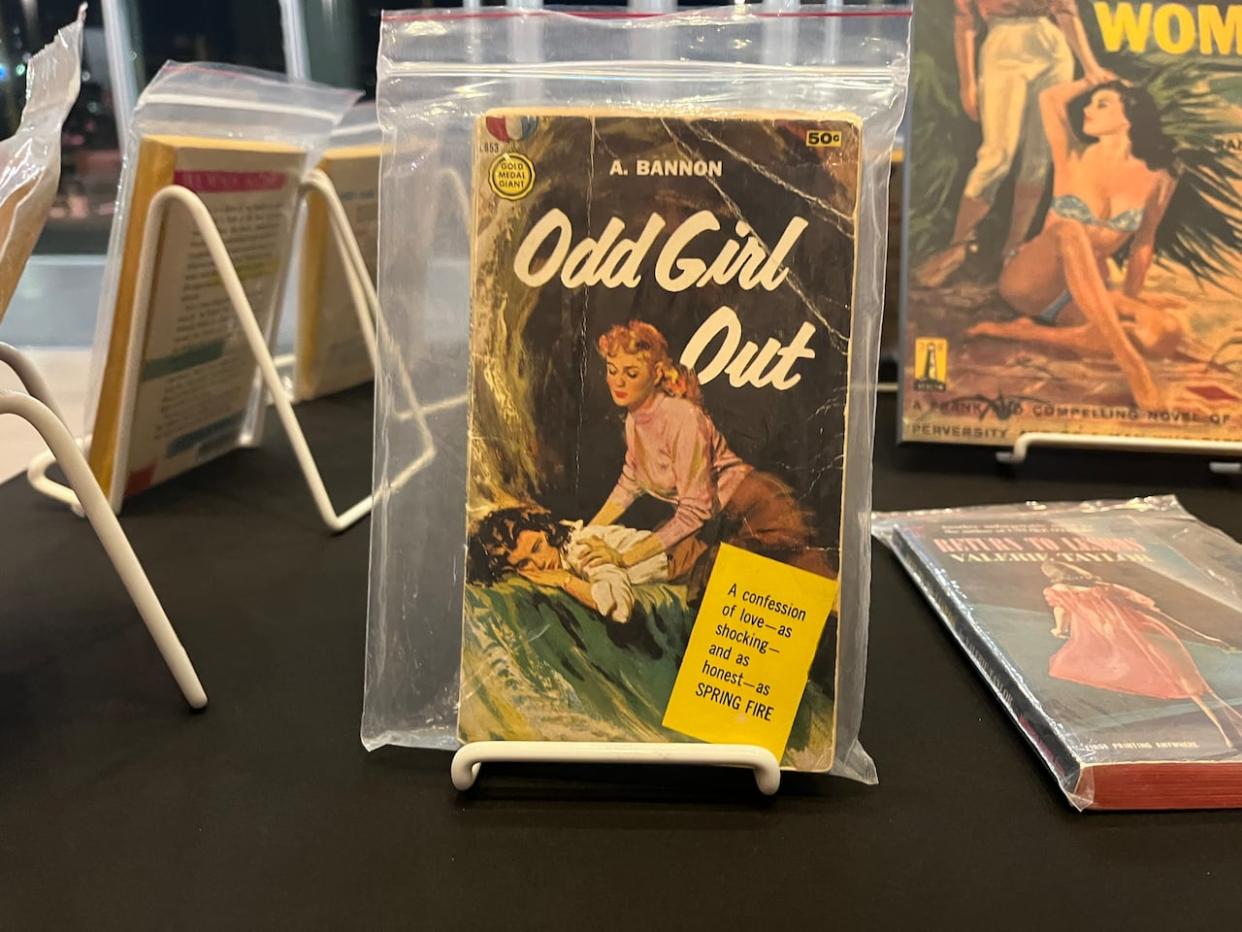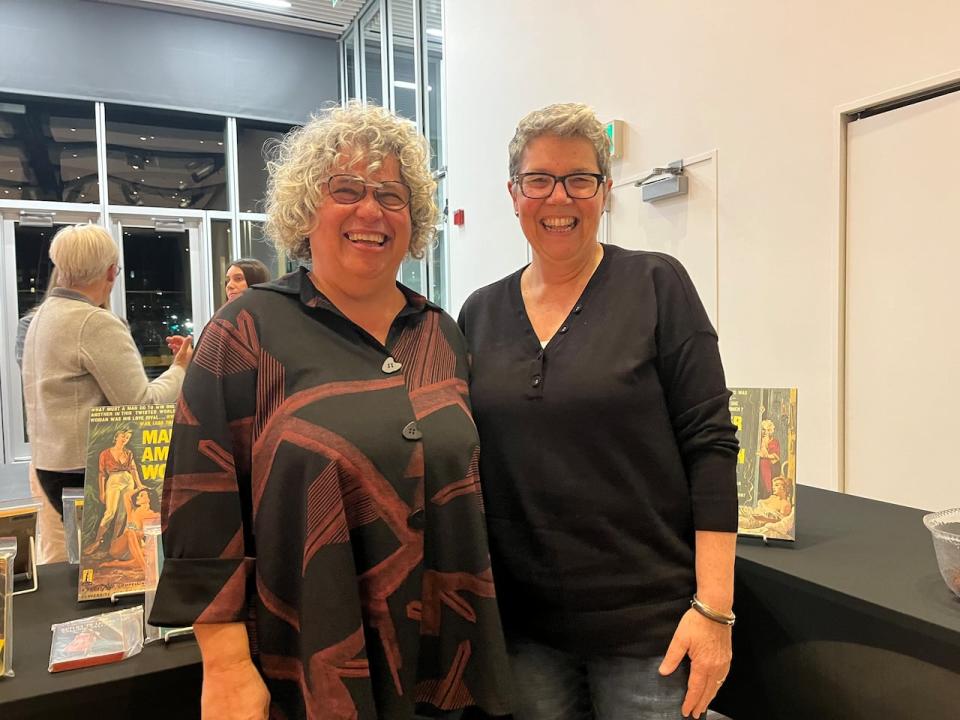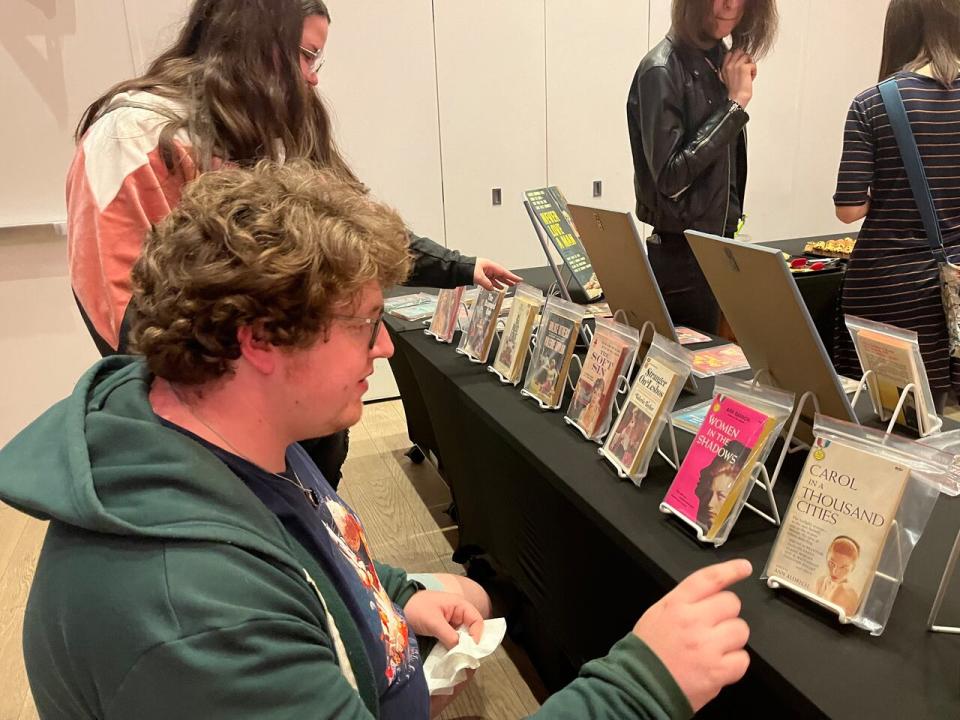Exploration of lesbian fiction from the '50s, '60s asks how much has changed, really?

It was the 1950s when a desperate young woman, rejected by her family because of her sexuality, walked into a drugstore, intent on taking her own life that day.
Inside the shop, the woman spotted a book cover featuring two women — a novel by American author Ann Bannon, the so-called Queen of Lesbian Pulp Fiction whose salacious stories of forbidden love served as one of the few representations of homosexuality at the time.
The young woman purchased the book and read it in one sitting on a bench, she later recounted to Bannon, who asked what happened next. The woman said she went home, had dinner and decided to live.
"I mean, it still gets to me. It'll get to me forever," said Bannon, now 91, whose novels include Odd Girl Out and Journey to a Woman.
The struggles of the 2SLGBTQ+ community as viewed through the lens of lesbian pulp-fiction novels, including Bannon's works, were the subject of a recent event at the Halifax Central Library.
The presentation celebrated lesbian literature, but it also reflected on what these novels represented at the time and prompted questions about what, if anything, has changed for the 2SLGBTQ+ community since their publication.
Source of hope and solace
Lesbian pulp-fiction novels were mass-produced and often featured covers depicting two women in provocative poses, offering solace and inclusion at a time when homosexuality was still illegal in Canada. It was decriminalized in 1969.
While some of these novels punished their subjects by ending a torrid romance with tragedy, they also reflected the attitudes of the past that have persisted into the present.
"I think we like to read them and think we have moved forward, but I'm not sure we have," said Terrah Keener, an activist for the 2SLGBTQ+ community who helped lead the presentation last Wednesday.
One person attending the presentation described friends who, at the same time these novels were published, were institutionalized because of their sexuality.
Another, younger attendee said the familial desertion that characters in these novels endured due to their sexuality is still a reality for many young 2SLGBTQ+ people.

Denyse Rodrigues, left, and Terrah Keener, right, recently led a presentation about lesbian pulp fiction at the Halifax Central Library. (Meig Campbell/CBC)
"Unfortunately, that is still a narrative of many people's lives," said Keener, who also works as an educator at the Nova Scotia Community College. "The statistics of homeless queer kids has not changed in decades."
A reflection of issues today
Keener and co-presenter Denyse Rodrigues said issues facing the 2SLGBTQ+ community today harken back to attitudes reflected in the pulp-fiction novels — attitudes that compelled people to suppress feelings and any desire to explore gender identity. They cited the number of 2SLGBTQ+ youth among Nova Scotia's homeless population, book bans on the rise in Canada and protests against 2SLGBTQ+ student rights in Halifax.
Rodrigues, a librarian at Mount Saint Vincent University, said the novels often hold answers to what life for 2SLGBTQ+ people was like in the '50s and '60s, and how the community can move forward.
"The same kind of reactions that were happening then are happening in Nova Scotia [today]," Rodrigues said. "That's why I'm so fascinated by hearing how they did then and can we learn from any of those things today?"

Event attendees Nadia Champion and Phillip Gnemmi look at the many books on display at the presentation. (Meig Campbell/CBC)
Bannon, who produced six lesbian pulp-fiction novels from 1957 to 1962, said a lot has changed in the decades since she penned her stories. Still, she noted there are "many, many parts of the world" where people cannot be their authentic selves.
"My belief all my life has been that people ought to be allowed to be who they are," Bannon said from her home in California. "They live better lives if that can happen."
MORE TOP STORIES


